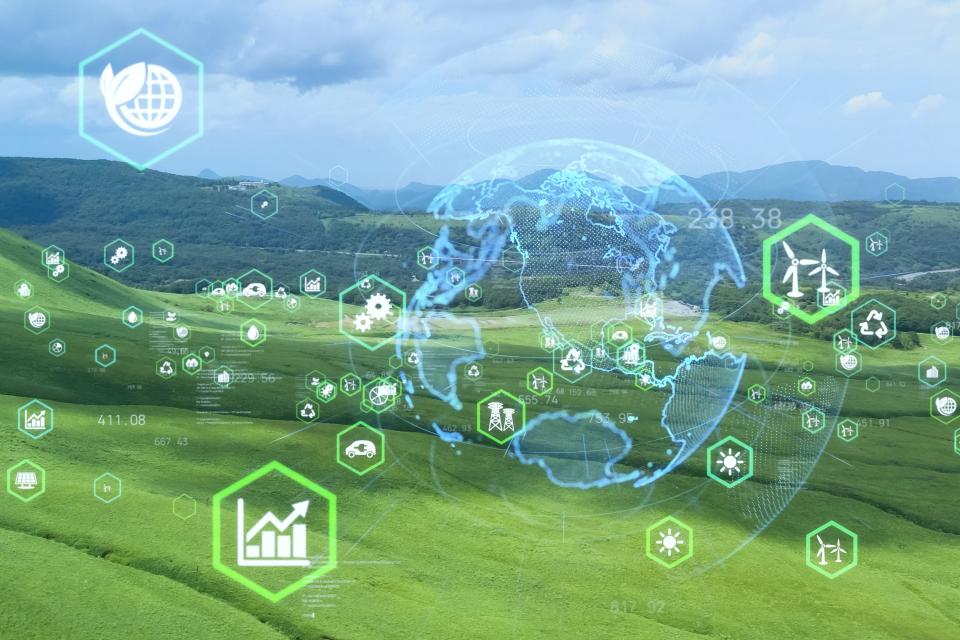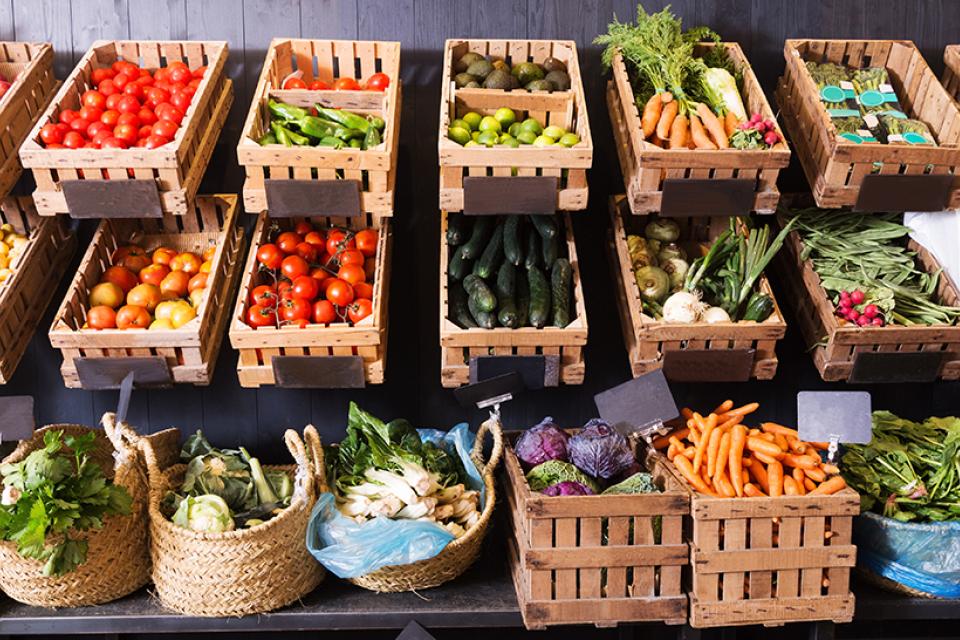Landing a Gut (Health) Punch with Artificial Intelligence
How AI can enable better health via food and make us better bosses of our bodies
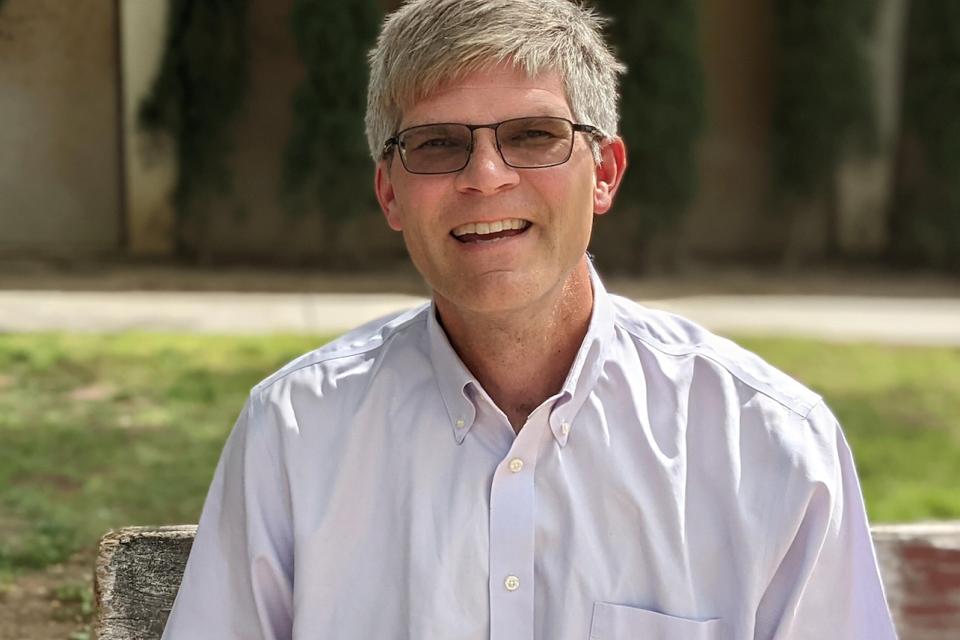
Gut health has increasingly been grabbing the attention of everyone from nutritionists to consumers as people become more aware of how microbiomes can impact everything from a person’s weight gain to their mental health. As such, researchers want to know, how can we be smarter about gut health?
Well, I can tell you from my work at UC Davis, the answer is artificial intelligence or AI.
A Diet Informed by AI
I recently co-authored a paper titled “The Computational Diet: A Review of Computational Methods Across Diet, Microbiome, and Health” published in the journal Frontiers in Microbiology. The title of which is a mouthful and the pun intended!
The point of this research is two-fold: 1) We are a LONG way from understanding all that food can do for us or against us depending on what we eat, and 2) Data science and AI can now radically accelerate this understanding to enable better physical and mental performance by eating smarter.
Similar to how AI can help business leaders make better decisions about their operations and investments for better growth, AI can help consumers make better decisions about their food choices for better health and performance.
AI can teach us how to be the bosses of our own bodies. This opportunity is especially obvious when thinking about the health of our digestive tract. This is where the food we eat encounters trillions of microbes and their genetic material (the so-called microbiome) teaming up with (when we are feeling healthy), or fighting against (when we are feeling unhealthy), billions of our own cells and DNA. Like I said, it’s a mouthful.
How Did I Get Here?
Much of my career has been about obsessing on designing healthier foods to help an increasingly unhealthier public. My graduate studies research focused on brightly colored pigments in plant foods (such as carotenoids and flavonoids) and their potential to serve as health promoting antioxidants.
In 1993, I joined M&M/Mars, owned by the Mars family, and immensely enjoyed the opportunity they provided to collaborate with world class research institutions around the world–UC Davis being prominent among these—at the innovation intersection of food, health and environmental sustainability.
Transitioning to the 21st Century
Until 2007, we were crushing it because we deployed a DARPA–like team philosophy by creating agile multi-disciplinary innovation teams inspired by a shared vision. Then AI started to happen. We began to think—if IBM’s question-answering computer system Watson could win Jeopardy! and improve cancer therapies, why couldn’t AI be used to create healthier and better-tasting food?
We started working on that concept; first with IBM and some of their Watson team, and then with others. We made some progress, but we also started to realize the intersection of food and consumer health is a uniquely complex space and we were going to have to assemble a new kind of multi-disciplinary team devoted to this domain. The usual suspects in Big Data were not going to get the job done.
Enter UC Davis AI
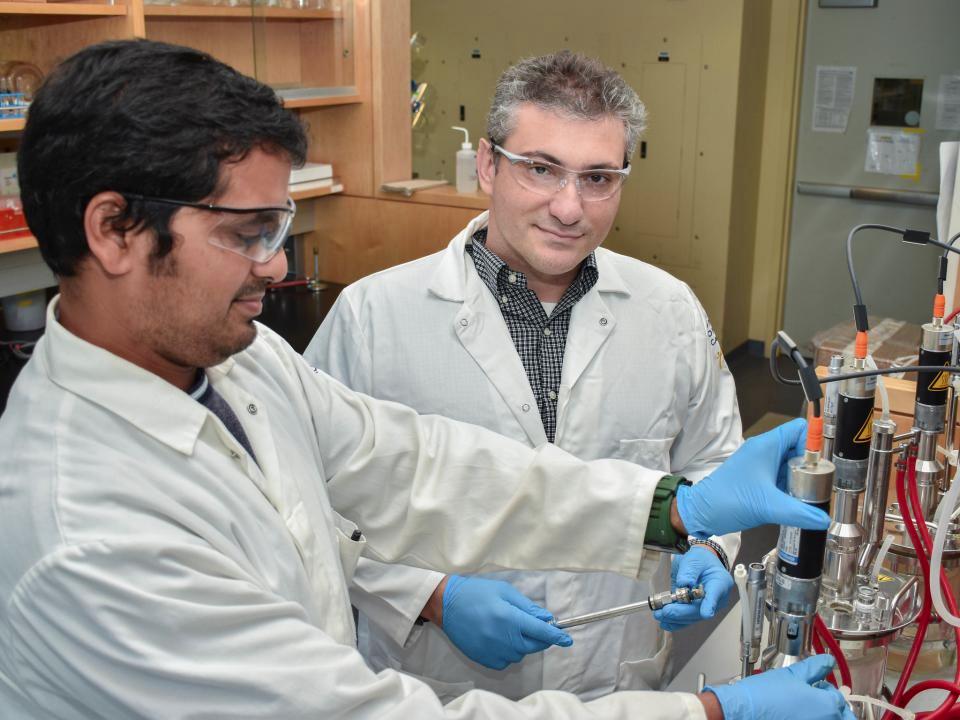
In 1994 I had the opportunity to co-found a strategic partnership between UC Davis and Mars. Professor Emeritus Carl Keen in nutrition and internal medicine and Professor Bob Powell in materials science and chemical engineering were the UC Davis co-founders.
This partnership enabled me to find Professor Ilias Tagkopoulos in 2015, a faculty member in computer science and the genome and biomedical sciences center. Professor Tagkopoulos is a leader in machine learning and AI, with a particular interest in applying these tools to unraveling mysteries at the interface of food and health, including in our digestive tracts where trillions of our friends and enemies reside.
The Latest Research
With this new team assembled, we got to work. Our paper reviews the current understanding of the gut microbiome and various ways food can play a key role in improving or damaging our digestive tracks, as well as the community balance of good versus bad microbial actors. The science is intense and complex. The questions, however, are basic:
- Can probiotics in fermented foods such as yogurt be helpful given the seeding of our digestive tracts with microbes mostly happens when we are infants?
- Is it more important to feed the good microbes in our digestive tracts by feeding ourselves with certain types of fiber they prefer compared to what the bad guys like?
- What kinds of protein are best for our digestive tract microbes: plant-based or animal-based?
- Is it possible to create convenient diagnostics, such as wearable devices, to monitor how trillions of our microbial friends are feeling and what we should feed them via our diet to make them happier?
Given how little we actually know about our diet and how it impacts the world within us, the questions are endless.
Exponential Business Opportunities in Food AI
A key point of our paper is that data science and AI are now sufficiently advanced enough to start answering these questions. Like so many other areas of our life, AI can revolutionize the role food can play in improving consumer health AND create new opportunities for reducing healthcare costs.
This revolution can enable an entirely new class of AI-based companies to thrive in the multi-TRILLION-dollar food sector. These new business-creation opportunities are especially exciting because the exponential growth and value created as AI is integrated into the business model.
Enter the Graduate School of Management and Innovation + Entrepreneurship
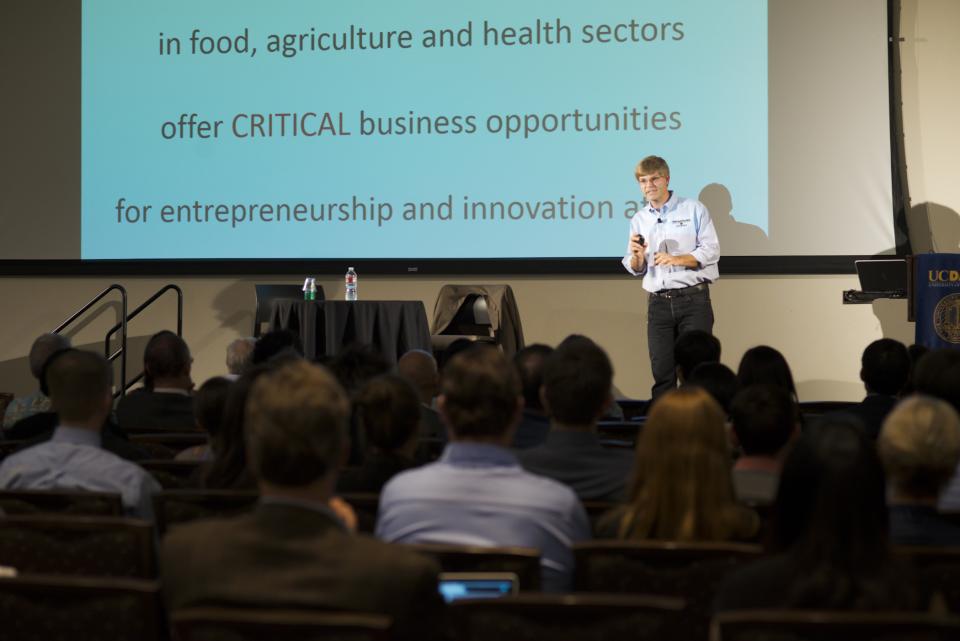
None of these discoveries would have happened without the support of the team at the Graduate School of Management (GSM) and their culture of collaboration and entrepreneurship.
I enjoyed immensely the honor of serving two terms as the Arthur and Carlyse Ciocca Visiting Professor of Innovation and Entrepreneurship at the GSM. The class I developed as visiting professor sparked a collaboration with GSM Professor Andy Hargadon, faculty director of the Mike and Renee Child Institute for Innovation and Entrepreneurship, and Dean H. Rao Unnava to create the Food and Agriculture Industry Immersion for MBA and graduate students in food sciences, now led by industry expert Julie Morris.
The paper that I co-authored with Professor Tagkopoulos and members of his lab team represents a case study for how the best executives can lead the best businesses in the food industry. Namely, by putting AI at the center of the business model to gain competitive advantage in design of products and services, intellectual property development, consumer understanding, speed to market, etc. In other words, every CEO’s vision: better, faster and more cost effective.
The UC Davis innovation ecosystem has all the world-class ingredients to create a healthier food system, including AI.
